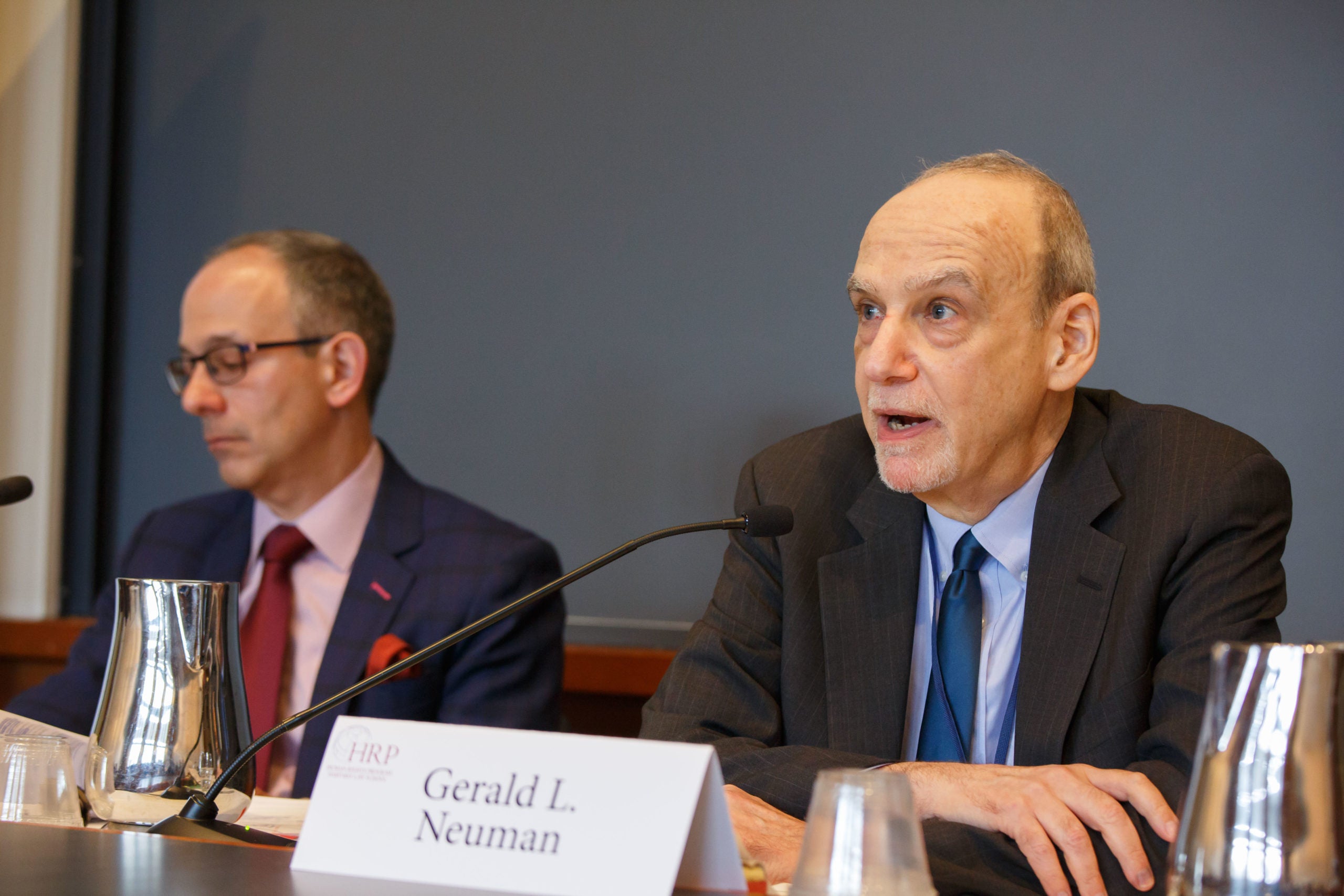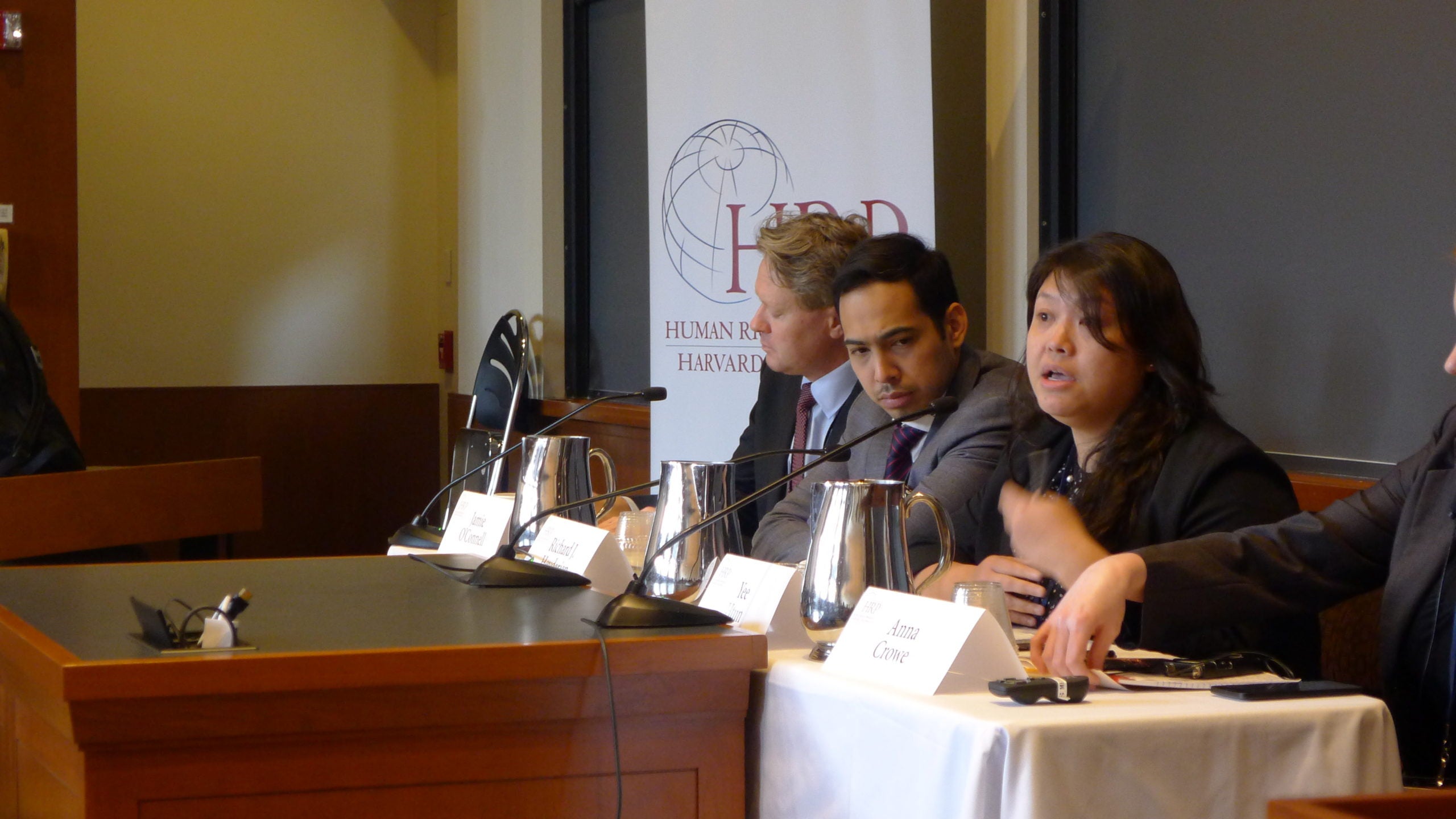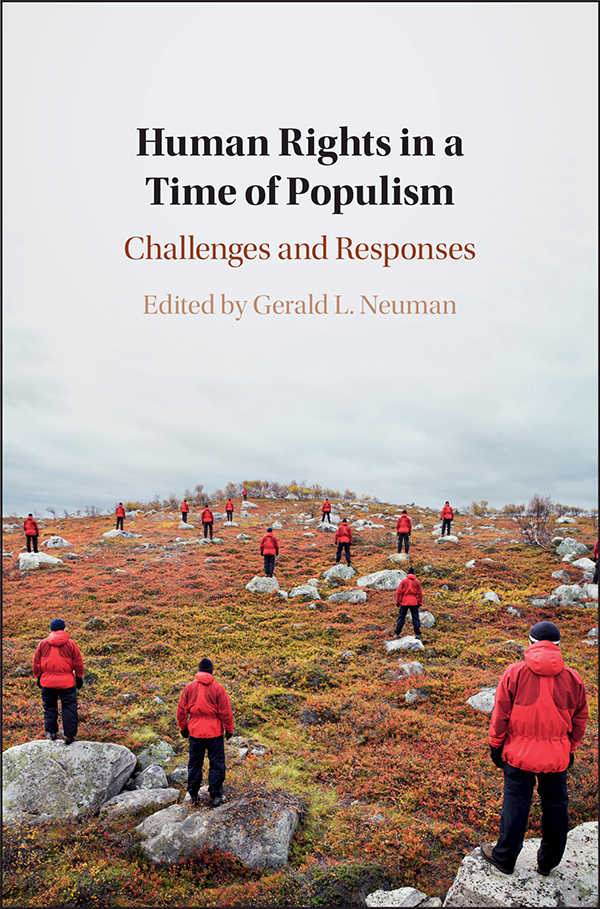A new volume “Human Rights in a Time of Populism” edited by Gerald L. Neuman ’80 brings together reflections from a range of experts on a growing trend in international politics since 2016, the electoral successes of right-wing populists. The Human Rights Program recently spoke with Professor Neuman about the book and how he sees the landscape changing for countries with populist leaders in the wake of the COVID-19 pandemic.
Neuman is the J. Sinclair Armstrong Professor of International, Foreign, and Comparative Law, and a Co-Director of the Human Rights Program at Harvard Law School. From 2011 to 2014, he was a member of the United Nations Human Rights Committee. The new volume is based on a 2018 HRP conference of the same name.
Human Rights Program: In 2018, you talked about the conference as providing a forum to discuss the rise of populism and its implications for international human rights. At the time, you defined populism as “a kind of politics that employs an exclusionary notion of the people—the ‘real people’—as opposed to disfavored groups that are unworthy, and whose will should not be constrained.” Does this definition still seem right to you in 2020?
Gerald L. Neuman: This “ideational” definition of populism (or exclusionary populism) still provides a useful guide to the current wave of populist threats to human rights. It comes from political science, which also offers other approaches to populism, but I find this definition identifies the salient category today. To me it has the benefit of distinguishing politicians who reject constraints from other politicians sometimes labeled populist who respect human rights, like Elizabeth Warren. However, a chapter in the book, by Douglas Johnson, [lecturer in public policy, Harvard Kennedy School], criticizes my choice and the negative view of populism that it involves. That disagreement illustrates the multifaceted character of the book.

HRP: At the conference, Peter Hall [Knapp Foundation Professor of European Studies at Harvard] spoke of how populist leaders in Western Europe preyed on an economic insecurity and a middle class fear of “being left behind.” How is this addressed in the book? Given the global economic downturn we are facing, are you worried that we may see another increase in populism across the world?
Neuman: As discussion at the conference showed, different sets of causes may contribute to populism in different parts of the world. It is possible that the economic downturn will intensify the populist reaction in some countries where it is already prevalent, and produce it in other countries where it has not been. On the other hand, the policy failures of incompetent populist governments in responding to the pandemic may give more respectable alternatives a chance.
HRP: In the context of the COVID-19 pandemic, academics, nongovernmental organizations, and media outlets have been sounding the alarm about how border lockdowns and declarations of emergency powers might be a tool of authoritarian governments to seize power. How does populism factor into this trend?
Neuman: Not all authoritarian governments are populist, but some are. We have seen how right-wing populists use the pandemic to augment their powers, most blatantly Viktor Orbán in Hungary, who received full powers to govern by decree for an indefinite period. That technique was analyzed at the conference by Helena Alviar García [professor at Sciences Po Law School], using examples of both left and right populists in Latin America.
HRP: When governments declare certain emergency powers that might deviate from the International Covenant on Civil and Political Rights, in a case like Orbán, they are supposed to report it to the Human Rights Committee. Could you describe the role of treaty bodies, such as the HRC, in monitoring emergency powers and how their role may have shifted in the current pandemic?
Neuman: The global treaty bodies vary in the flexibility of their procedures. Some have options for urgent intervention in general situations, while others respond more slowly and usually monitor emergencies after they have ended. Currently it is difficult for treaty bodies to meet for dialogues with states. The simultaneous emergencies in numerous countries are a serious challenge for any monitoring system. There is still capacity to examine some extreme cases, and to articulate principles that should apply more generally. For example, the Human Rights Committee adopted a statement on emergency measures for COVID-19 in April, although it was not formally in session; the ten Chairs of the treaty bodies issued a joint statement in March; and several other treaty bodies have issued their own intersessional statements.
HRP: At the conference, panelists discussed how populist leaders often stoke fear over immigration. How does the book explore this idea? How has the pandemic exacerbated these conditions?
Neuman: Several chapters include discussions of anti-immigrant populism, as well as ethnic minorities treated as not the “real people,” such as the Rohingya in Myanmar in a chapter by the International Human Rights Clinic’s Yee Htun. The pandemic has underlined both the need for some controls on travel and the danger that public opinion will be inflamed against immigrants and minorities, as an extension of previous campaigns or to distract attention from government failings. The Trump Administration has used the pandemic as a pretext to dismantle asylum protections and slash family reunification.

HRP: In your view, is it possible that the pandemic could dislodge populist leaders? More generally, are there any opportunities or positive trends you’re seeing in the current landscape for advancing international human rights right now?
Neuman: Some populist leaders may lose support when the falsity of their policies becomes evident, but situations vary widely, and successful opposition requires an effective movement. Other populists, unfortunately, may be strengthened by the emotional insecurity of their voters. The pandemic also reveals the gaps in healthcare systems and worker protections, and creates an opportunity to improve social and economic rights, which will also require an effective movement.
